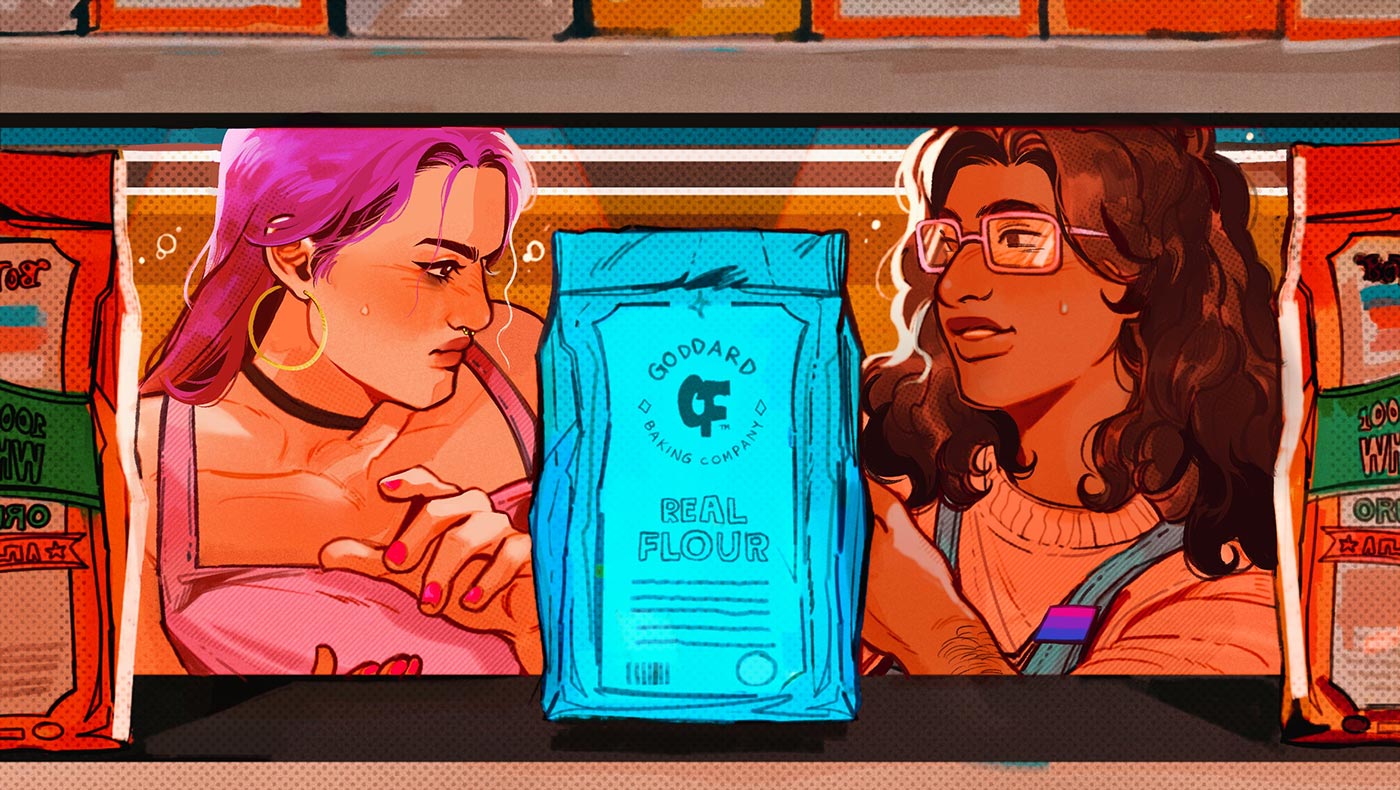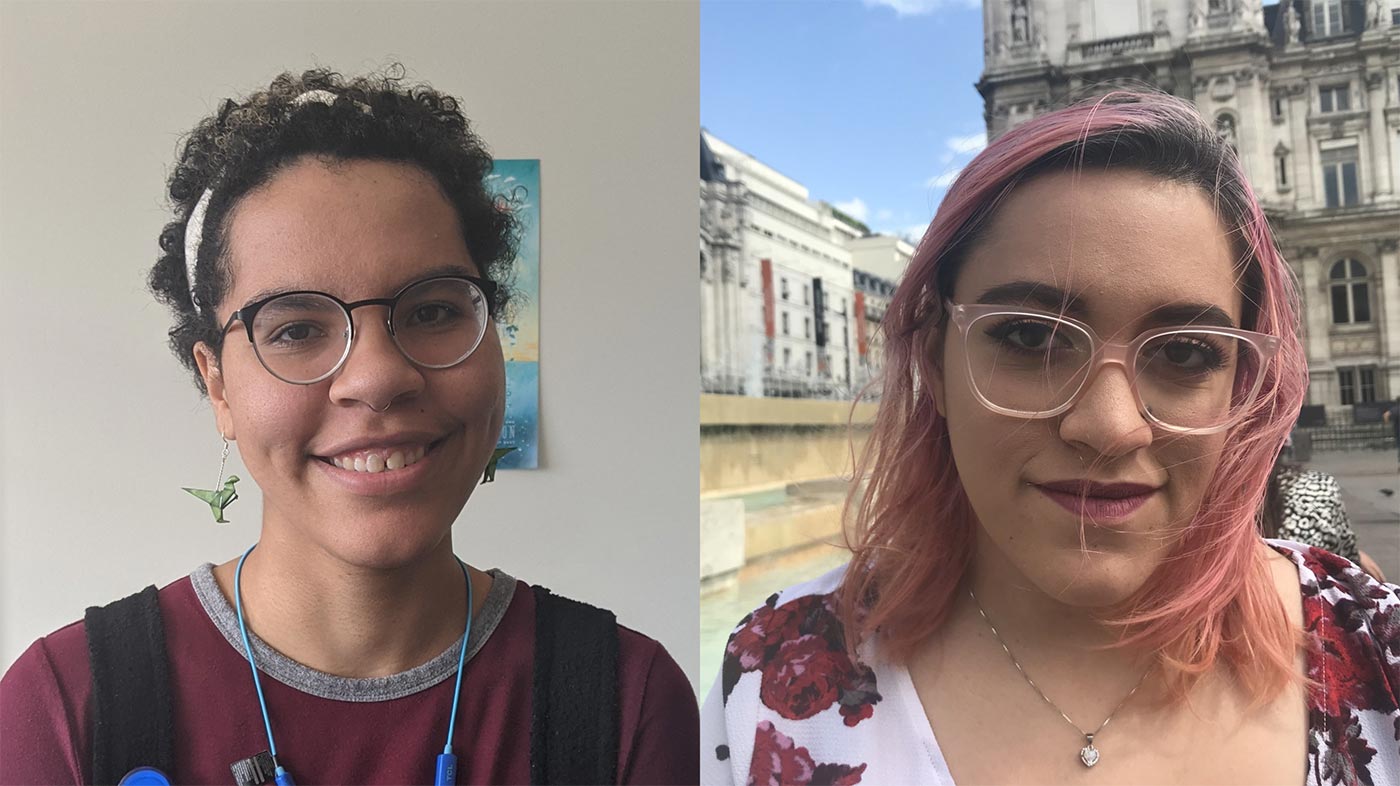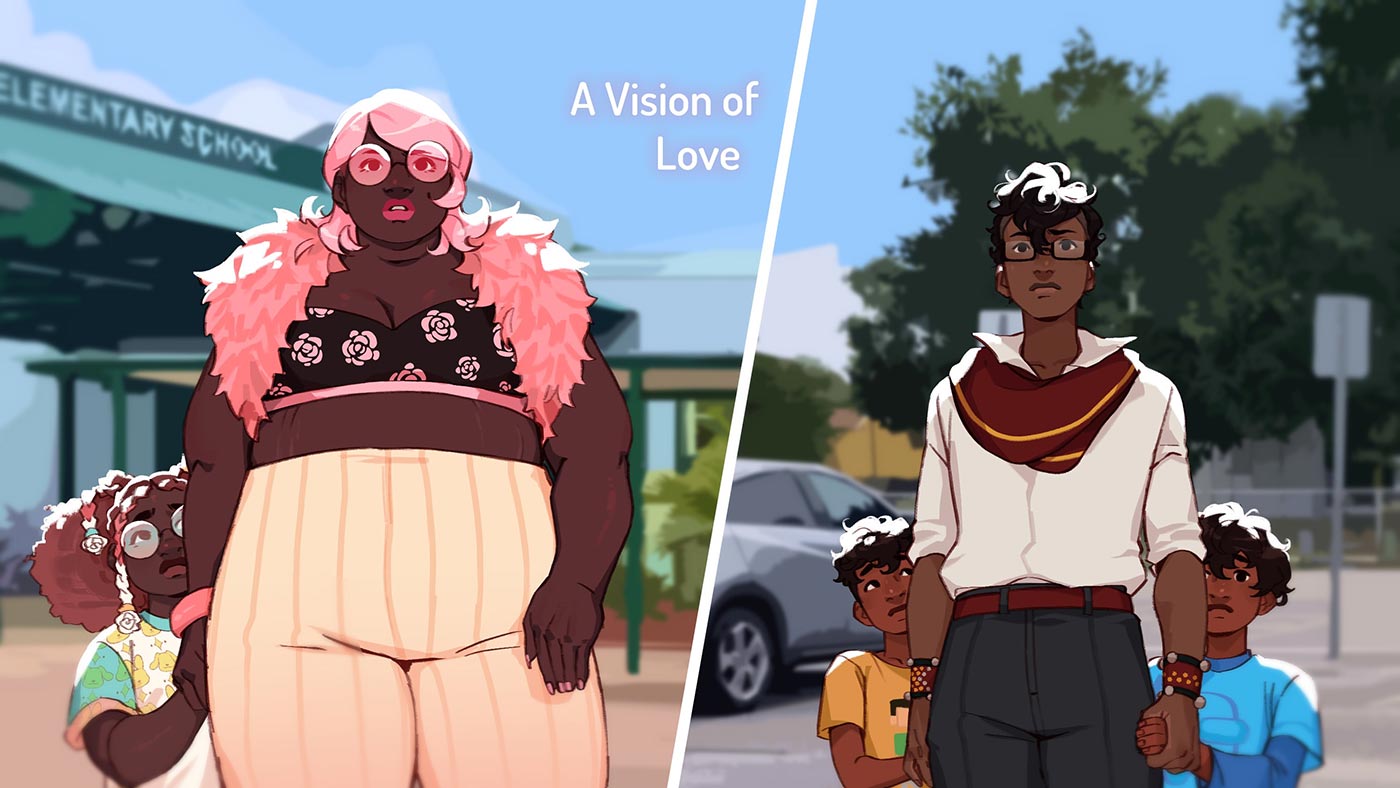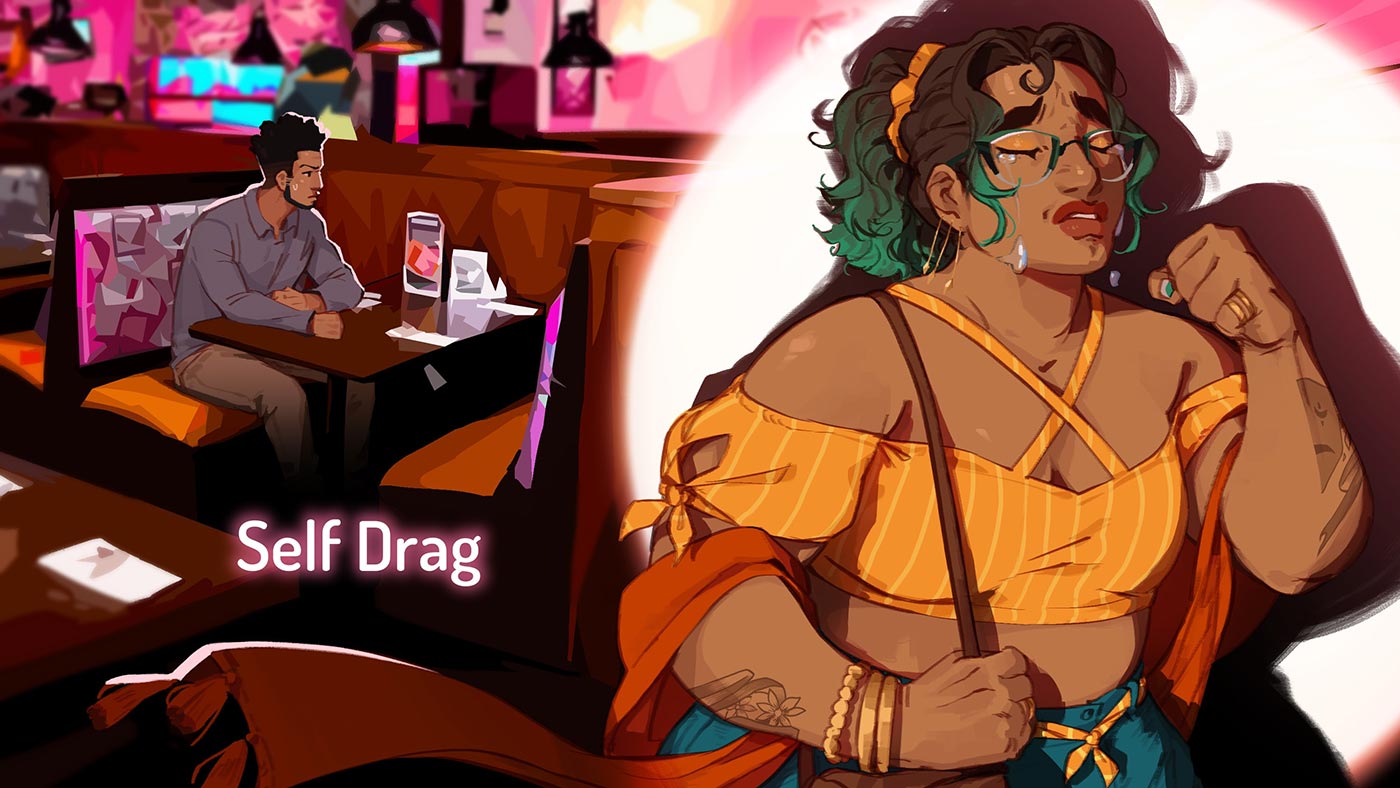“We want to make a space for people like us”: Khoury alums bring queer love stories to game dev
Author: Madelaine Millar
Date: 06.21.23

For Cam Perry, working on the game ValiDate is a labor of love — garnished with a little spite.
ValiDate is a visual novel dating simulation that follows 13 queer, BIPOC characters dating, making friends, falling in love, and navigating their lives in the fictional Jercy City. Each of the game’s three installments explores a handful of the characters in depth, with the first installment launching last year. But unlike many dating sims, ValiDate is not a self-insert where the lead character is meant to be a stand-in for the player themselves. By playing through the carefully crafted storylines of characters like Isabella, a Latina theater nerd, and Emhari, a Black and Middle Eastern bigender trans woman, players get a peek into the lives of people whose stories rarely make it onto the screen.
Not that everyone has reacted well to these characters.
“Anytime you went to ValiDate’s Twitter replies, it was just awful,” said Perry, a ValiDate programming lead and 2021 Khoury College graduate. “That just makes me want to support this game more. It’s very important to me for people to see different kinds of people — queer, BIPOC, etc. — in games … The more of those types of games exist, the better.”
Perry has contributed work to ValiDate for almost two years, as has their old Khoury classmate and friend Jamie Camera, who also graduated in 2021. As computer science and game development students, the two found a supportive, inclusive game dev scene on campus, and now they hope their work on ValiDate can help the wider game dev world to look more like the community they found in extracurricular spaces at school.
 Cam Perry (left) and Jamie Camera (right).
Cam Perry (left) and Jamie Camera (right).Camera was inspired to join the ValiDate team after reading Isabella’s story and seeing facets of their experience in Isabella that they hadn’t seen reflected on-screen before, like a love for musicals that their Puerto Rican and Cuban family didn’t quite understand.
“It’s about going through the positives and negatives of the relationships with other characters and the world these characters are living in,” Camera explained. “We wanted to make characters that relate to someone you know, not this idealized version of a hero or something. It’s just everyday people.”
Camera and Perry met in a game dev course their freshman year and quickly bonded over being the only ones in the class who didn’t present as cisgender men. The two joined the Northeastern Game Development Club together, eventually rising to leadership positions (treasurer and vice president for Camera, president for Perry) and discovering a creative, eclectic, hardworking group of young programmers with whom they truly felt at home. Everyone wanted to have fun, and everyone had an eye turned to the future.
“Especially compared to other game devs I know who go to college, I think Khoury students are some of the better prepared ones for the industry,” Camera said. “I knew what to expect, and I didn’t have an idealized version of what that industry was.”
But as prepared as Camera, Perry, and their peers were for the game dev industry, the game development industry wasn’t totally prepared for them.
“The Boston area actually has a really amazing game scene, probably the best on the East Coast. But it lacked the focus on queer people and ethnic diversity,” Camera continued. “We wanted to make a space for us and people like us.”
Perry had met some of ValiDate’s developers through their co-op at Code Coven, a games industry accelerator for people of marginalized genders. They began following the game when it was still in its kickstarter stage, excited to see characters on screen in which they could see parts of themself, and joined the team as a freelancer around the time they graduated. They now spend about 15 hours a week building the game in Unity, delegating and monitoring programming tasks, fixing bugs, and meetings with the other team leads; they just finished working on an update to add minigames to ValiDate.

“There’s a fishing minigame and a rhythm minigame; getting those to play nicely with the plugin and Unity, and creating the transition from a visual novel to this cute little minigame was really great to see,” Perry said. “So much more work goes into those little minigames than a lot of people expect.”
Camera joined ValiDate in mid-2021, around the same time as Perry. They hope that their work can prompt others in the games industry to take a chance on characters that don’t fit established molds.
“We are a very small team; this isn’t anyone’s full-time job, so of course we’re not gonna have the resources to fully animate something or make this a 60-hour experience, which is what a lot of AAA studios do,” Camera said. “We wanted to inspire people, like ‘Hey, this game is getting good attention, maybe that means we should start adding these types of characters into our games.’”
Because Perry and Camera both have marginalized identities — Perry is Black and nonbinary, while Camera is a nonbinary Latinx person — the vitriolic online comments can sting a little extra.
“It hurts a lot to see people discredit you because they don’t agree with your quote unquote ‘politics,’” Camera said. “But I don’t even feel that this is particularly political, because all I’m doing is existing, you know?”

On the flip side, the reception from those who have seen themselves reflected in a game, often for the first time, has been beyond rewarding.
“We get a lot of people saying, ‘Oh, thank you so much for adding in this rep,’” Perry said. “Inaya is a Pakistani nonbinary character, and we get a lot of people from the fan server saying ‘I just read Inaya’s story arc and cried’ … It’s really important to see stories that aren’t the norm.”